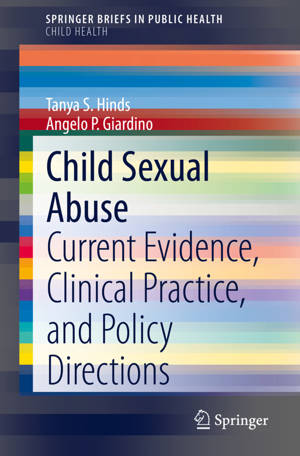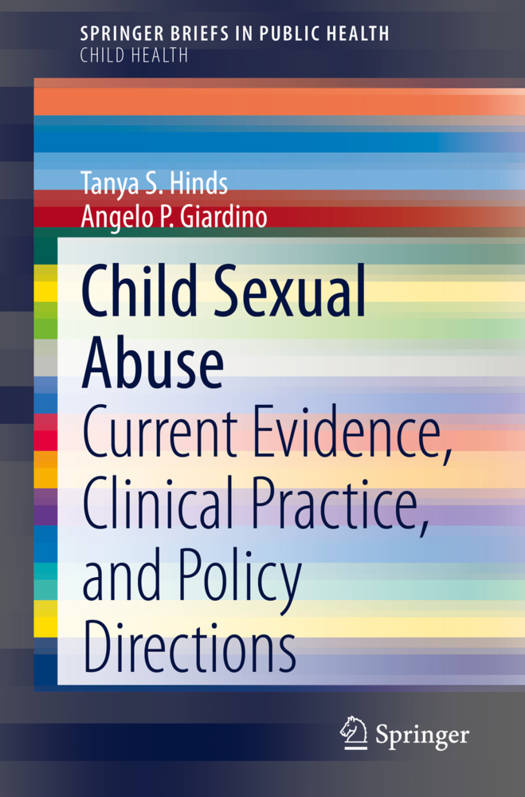
- Retrait gratuit dans votre magasin Club
- 7.000.000 titres dans notre catalogue
- Payer en toute sécurité
- Toujours un magasin près de chez vous
- Retrait gratuit dans votre magasin Club
- 7.000.0000 titres dans notre catalogue
- Payer en toute sécurité
- Toujours un magasin près de chez vous
Child Sexual Abuse
Current Evidence, Clinical Practice, and Policy Directions
Tanya S Hinds, Angelo P GiardinoDescription
This brief approaches the challenging topic of child sexual abuse from an objective, evidence-based perspective. It offers an overview of child sexual abuse, including definitions and a clear explanation of the epidemiology. The text also explores the conceptual frameworks that seek to explain how a child comes to be sexually abused by an adult or older adolescent.
In the chapters, the authors present credible prevalence and incidence studies that are used to provide a scientific response to how common this problem is. In addition, they address the policy implications for a myriad of prevention and treatment initiatives as well as related issues such as delayed reporting and the risk for sexual abuse within child serving organizations. Finally, the brief concludes with the authors' recommendations for the future on how best to prevent child sexual abuse in the first place. Prevention of child sexual abuse is very different than prevention of child physical abuse and neglectand requires a different framework and set of initiatives.
Child Sexual Abuse: Current Evidence, Clinical Practice, and Policy Directions is a must-have resource for a range of professionals including healthcare providers, child advocates, clinical social workers, public health officials, mental health providers, and legislative staff professionals. It also is written in a readable manner for members of the lay public.
Spécifications
Parties prenantes
- Auteur(s) :
- Editeur:
Contenu
- Nombre de pages :
- 122
- Langue:
- Anglais
- Collection :
Caractéristiques
- EAN:
- 9783030525484
- Date de parution :
- 27-08-20
- Format:
- Livre broché
- Format numérique:
- Trade paperback (VS)
- Dimensions :
- 156 mm x 234 mm
- Poids :
- 208 g

Les avis
Nous publions uniquement les avis qui respectent les conditions requises. Consultez nos conditions pour les avis.






